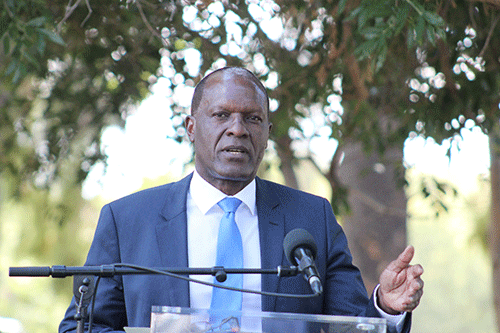Xinfeng Investments, the Chinese company that mines Lithium near Uis, emerged victorious, but not unscathed, in its battle with mines minister Tom Alweendo.
While acting High Court judge Ramon Maasdorp granted it an interdict to stop Alweendo from implementing a decision he made on 28 April to revoke his decision to grant Xinfeng mining licence ML 243 in the Daures constituency on 6 September 2022, he had some scathing words for Xinfeng.
Maasdorp found that although the minister proved prima facie that Xinfeng was dishonest in its application for a mining licence, he found that the minister did not have the right to cancel or revoke the licence unilaterally.
According to the judge, the minister had to approach a competent court of law to review the decision and set it aside if need be. He further said Xinfeng will have to answer for its conduct in the main trial and he (Maasdorp) cannot judge on it.
Xinfeng asked the court to interdict Alweendo from implementing his decision to revoke their mining licence.
Alweendo has a counter-suit for the court to declare his decision to grant the licence as a nullity.
Approached for comment, Brian Eiseb, the acting executive director of the ministry, said they will abide by the court order and honour the judgement. He further said a substantive review application is to be heard in due course which renders the matter sub judice
and the ministry will refrain from commenting until the full matter is heard and decided.
Nambili Mhata, who represented Xinfeng, declined to comment, as he still has to study the judgement.
During the hearing, advocate Vincent Maleka SC – instructed by Mhata on behalf of Xinfeng – argued that the decision cannot be declared null and void as it was a decision made by a decision maker (functus officio) and even if unlawful, remains a fact. He said that such a decision cannot be rectified by a decision maker arbitrarily, but must be reviewed and if found unlawful set aside by a competent court.
According to Maleka, the minister can only cancel the licence in the event that the licence holder is unable to adhere to the conditions of the licence, which in this instance is not the case.
Furthermore, he said, the decision of the minister to grant the licence was made before the allegations of fraud surfaced and his decision to cancel was after the fact. In any event, he said, Xinfeng did not admit to making misrepresentations in their application and used the parts allegedly plagiarised as a narrative to show how the lithium will be extracted and not as technical data. He went on to say that it will be very difficult for the minister to prove that Xinfeng deliberately misled him as the threshold to prove fraud is very high and the decision to revoke was based on allegations of fraud.
“Incorrect,” said advocate Gerson Narib, who appeared for the minister on instructions of the government attorney. According to him, the manner in which the reports were submitted to the minister was done in a way to influence his decision unfairly.
“This makes the decision a nullity and an unlawful act,” he said.
Narib added that the fact that the decision to grant the licence was unlawful in the first place makes it unnecessary for the minister to approach a court to set it aside. In such an event, he said, the decision is not a fact, as it was not made in good standing.
He further said that the misleading reports submitted by Xinfeng which influenced the minister’s decision was the culprit in the matter and submitted that this behaviour of Xinfeng vitiated the granting of the licence. And as such, he said, an invalid admin act cannot have a subsequent invalid decision.
The judge ordered that the minister must pay the costs of the application on the scale of one instructing and two instructed counsel.
– rrouth@nepc.com.na



